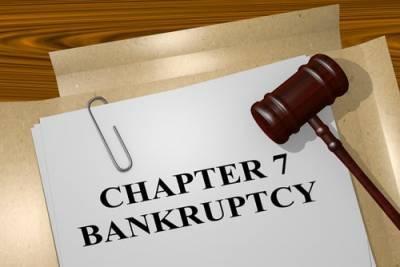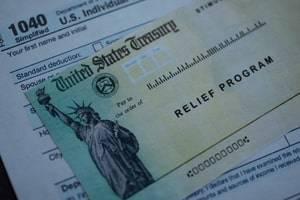 312-704-0771
312-704-0771
Recent Blog Posts
Understanding the Chapter 7 Bankruptcy Means Test
 In general, bankruptcy is an outcome that most creditors want to avoid when dealing with a debtor. If you are an unsecured creditor, the debtor may use bankruptcy discharge to clear their debt while paying you little or none of what they owe. Most consumer debtors file for either Chapter 7 or Chapter 13 bankruptcy, and the chapter they choose may depend on what they qualify for.
In general, bankruptcy is an outcome that most creditors want to avoid when dealing with a debtor. If you are an unsecured creditor, the debtor may use bankruptcy discharge to clear their debt while paying you little or none of what they owe. Most consumer debtors file for either Chapter 7 or Chapter 13 bankruptcy, and the chapter they choose may depend on what they qualify for.
A debtor cannot use Chapter 7 bankruptcy if the bankruptcy court deems that they are capable of repaying their debts. One way that a potential bankruptcy filer can determine whether they qualify for Chapter 7 bankruptcy is through the Chapter 7 Bankruptcy Means Test. If the debtor does not pass the test, then Chapter 13 bankruptcy may be their only option.
Chapter 7 vs. Chapter 13
Before explaining the Chapter 7 Means Test, it is helpful to understand the difference between the forms of bankruptcy from a creditor’s perspective:
How Banks Are Using Technology to Help with Debt Collection
 With the ways that technology has changed consumer behavior, lenders have been rethinking their approach to debt collection. A room full of people calling delinquent debtors may no longer be the most efficient or effective way to collect debts. Instead, lenders such as banks are using communication technology to more quickly reach clients with a tone that sounds and feels less aggressive.
With the ways that technology has changed consumer behavior, lenders have been rethinking their approach to debt collection. A room full of people calling delinquent debtors may no longer be the most efficient or effective way to collect debts. Instead, lenders such as banks are using communication technology to more quickly reach clients with a tone that sounds and feels less aggressive.
Efficient debt collection may become a necessity given the current financial status of households and businesses throughout the United States. Many lenders have allowed borrowers to defer payments or use forbearance because of the financial hardship they are suffering during the COVID-19 pandemic. When the deferrals have ended, however, lenders may need to ramp up their debt collection efforts.
New Ways to Facilitate Collections
There are three main ways that banks are using technology to help with debt collection:
Four Keys to a Strong Guarantee in a Loan Contract
 A loan contract can have more than one party who is liable for the debt. For instance, a loan may have a guarantee, in which a third party called a guarantor promises to repay the debt in the event that the principal debtor defaults. A guarantor can be an individual, bank, or other financial institution and can agree to put up assets as collateral for the debt. For creditors, a guaranteed debt provides security if lending to someone who has a poor or unproven credit history. However, the guarantor could try to get out of their liability by finding a weakness in the contract. Here are four tips for creating a strong guarantee in your debt contract:
A loan contract can have more than one party who is liable for the debt. For instance, a loan may have a guarantee, in which a third party called a guarantor promises to repay the debt in the event that the principal debtor defaults. A guarantor can be an individual, bank, or other financial institution and can agree to put up assets as collateral for the debt. For creditors, a guaranteed debt provides security if lending to someone who has a poor or unproven credit history. However, the guarantor could try to get out of their liability by finding a weakness in the contract. Here are four tips for creating a strong guarantee in your debt contract:
- Get the Guarantee in Writing: It may seem obvious, but it is crucial that the guarantee is a written agreement. Courts typically do not recognize oral agreements for guarantees, and even if they did, an oral agreement is an unreliable way to set strict terms for the guarantee.
Illinois Mortgage Delinquencies May Rise Due to Recession
 Lawmakers in the U.S. recognized from the beginning of the COVID-19 crisis that homeowners would need help with mortgage payments in order to avoid a surge in mortgage foreclosures. The Coronavirus Aid, Relief, and Economic Security Act had several provisions for homeowners, including:
Lawmakers in the U.S. recognized from the beginning of the COVID-19 crisis that homeowners would need help with mortgage payments in order to avoid a surge in mortgage foreclosures. The Coronavirus Aid, Relief, and Economic Security Act had several provisions for homeowners, including:
- A moratorium on foreclosure of single-family homes with federally backed mortgages, which the Federal Housing Finance Agency recently extended until at least Aug. 31
- A mandate that forbearance be provided to homeowners, regardless of their delinquency status
- The loosening of restrictions on modifying loans
Illinois has issued executive orders that put a moratorium on evictions, though it also said that homeowners are still responsible for making mortgage payments. Housing market analysts are concerned that the downturn in the economy could lead to the state’s worst mortgage delinquency rate since the Great Recession of a decade ago.
How to Collect from a Deceased Debtor’s Estate
 It is common for a person to die before they are able to pay off all of their debts. As a creditor, you have the right to seek repayment for debts even after a debtor has died. If someone cosigned on the debt, your collection efforts can shift towards the living party. Otherwise, you will be collecting the debt from the deceased party’s estate. Each state has its own rules for how soon creditors must make claims against the estate and how much of the estate is available to creditors. For creditors operating under Illinois law, here are the answers to three basic questions about retrieving debt from a deceased party:
It is common for a person to die before they are able to pay off all of their debts. As a creditor, you have the right to seek repayment for debts even after a debtor has died. If someone cosigned on the debt, your collection efforts can shift towards the living party. Otherwise, you will be collecting the debt from the deceased party’s estate. Each state has its own rules for how soon creditors must make claims against the estate and how much of the estate is available to creditors. For creditors operating under Illinois law, here are the answers to three basic questions about retrieving debt from a deceased party:
- What Priority Do Creditors Have?: A deceased person’s estate must repay the person’s creditors before it distributes assets to beneficiaries. Illinois exempts certain assets from being collected, such as life insurance and retirement benefits. In the event that the deceased person’s debts are greater than their assets, their assets will be distributed based on the priority of each creditor’s claim.
Which Types of Federal and State Benefits Are Creditors Not Allowed to Garnish?
 When all other attempts to collect a debt have been unsuccessful, a creditor may be left with only more drastic measures, such as wage garnishment. You cannot garnish a debtor’s wages until after you have filed a lawsuit against the debtor and the court has found in your favor. With wage garnishment, you can order the debtor’s employer to divert a portion of their paycheck to you in order to repay their debt. You can also freeze the debtor’s bank account in order to garnish money without the debtor being able to withdraw it. However, there are some sources of income that you cannot collect from. For instance, many federal and state benefits are exempt from garnishment.
When all other attempts to collect a debt have been unsuccessful, a creditor may be left with only more drastic measures, such as wage garnishment. You cannot garnish a debtor’s wages until after you have filed a lawsuit against the debtor and the court has found in your favor. With wage garnishment, you can order the debtor’s employer to divert a portion of their paycheck to you in order to repay their debt. You can also freeze the debtor’s bank account in order to garnish money without the debtor being able to withdraw it. However, there are some sources of income that you cannot collect from. For instance, many federal and state benefits are exempt from garnishment.
Which Benefits Are Exempt?
Federal and state laws protect individuals’ benefits from both garnishment and deduction. In Illinois, exempt benefits include:
Strategies for Creditors Negotiating a Loan Modification
 With the millions of people who have lost their jobs the past few months, creditors face the possibility of an increasing number of borrowers defaulting on their debts. With some clients, creditors will eventually need to decide whether to pursue collection on the debt or offer to modify the loan. Creditors who use debt collection may risk the debtor filing for bankruptcy and receiving little or no repayment if they are not a secured creditor. Negotiating a loan modification can be more beneficial for both sides but may not work with all clients. The creditor must balance receiving some return on the loan without surrendering too much money with the modification.
With the millions of people who have lost their jobs the past few months, creditors face the possibility of an increasing number of borrowers defaulting on their debts. With some clients, creditors will eventually need to decide whether to pursue collection on the debt or offer to modify the loan. Creditors who use debt collection may risk the debtor filing for bankruptcy and receiving little or no repayment if they are not a secured creditor. Negotiating a loan modification can be more beneficial for both sides but may not work with all clients. The creditor must balance receiving some return on the loan without surrendering too much money with the modification.
Should You Offer Loan Modification?
You should evaluate each client individually before deciding whether to approach them about loan modification or accept their offer to negotiate a loan modification:
Four Steps Creditors Must Take in Response to Bankruptcy
 The number of people who have recently become jobless in the U.S. may cause an increase in people who default on their debts. Creditors have several methods of handling a defaulted debt, such as debt collection practices, modifying the debt agreement, or taking the debtor to court. A debtor may try to clear their debts by filing for bankruptcy. Bankruptcy can prevent unsecured creditors from collecting their remaining debt if the bankruptcy filer is allowed to discharge their debts. If your debtor has filed for bankruptcy, there are several steps you must take to have a chance at still receiving the money you are owed:
The number of people who have recently become jobless in the U.S. may cause an increase in people who default on their debts. Creditors have several methods of handling a defaulted debt, such as debt collection practices, modifying the debt agreement, or taking the debtor to court. A debtor may try to clear their debts by filing for bankruptcy. Bankruptcy can prevent unsecured creditors from collecting their remaining debt if the bankruptcy filer is allowed to discharge their debts. If your debtor has filed for bankruptcy, there are several steps you must take to have a chance at still receiving the money you are owed:
- Honor the Automatic Stay for Now: A bankruptcy notice includes an automatic stay on all debt collection activity. You may have a reason to contest the stay or the bankruptcy, but your immediate reaction should be to stop communicating with the debtor or trying to repossess properties. You can be penalized for knowingly violating the automatic stay.
How the Coronavirus Is Affecting U.S. Creditors
 The coronavirus outbreak in the U.S. is being fought on two fronts: public health and the economy. Government efforts to slow the spread of the virus have caused many Americans to lose their jobs or see their pay drastically cut. Among other expenses, people who are out of work may have more difficulty repaying their debts. Creditors are in a delicate position where they must balance their own interests against the hardships that many debtors are experiencing. As a result, forces in the public and private sector are providing debt relief by allowing some debtors to suspend their payments without penalty.
The coronavirus outbreak in the U.S. is being fought on two fronts: public health and the economy. Government efforts to slow the spread of the virus have caused many Americans to lose their jobs or see their pay drastically cut. Among other expenses, people who are out of work may have more difficulty repaying their debts. Creditors are in a delicate position where they must balance their own interests against the hardships that many debtors are experiencing. As a result, forces in the public and private sector are providing debt relief by allowing some debtors to suspend their payments without penalty.
Government Action
The federal government has recently issued orders in regards mortgages and student loan payments:
- Mortgages that are backed by Fannie Mae, Freddie Mac, and the Federal Housing Administration are eligible for up to 12 months of forbearance.
‘Zombie Foreclosures’ Are Dwindling But Not Dead
 During the Great Recession, so-called “zombie homes” were a common problem for mortgage lenders. Zombie foreclosure is a way of describing a situation where a home is abandoned after the occupants received a foreclosure notice. The number of zombie foreclosures has decreased since the height of the housing market crash. A recent report on foreclosures during the fourth quarter of 2019 found that 3.1 percent were zombie foreclosures, which is down 5.8 percent from the first quarter of 2014. Illinois had the fourth-most zombie foreclosures in the U.S. with 943, which is 4.7 percent of its foreclosures. Abandoned homes are still a problem that can decrease the resale value of the property.
During the Great Recession, so-called “zombie homes” were a common problem for mortgage lenders. Zombie foreclosure is a way of describing a situation where a home is abandoned after the occupants received a foreclosure notice. The number of zombie foreclosures has decreased since the height of the housing market crash. A recent report on foreclosures during the fourth quarter of 2019 found that 3.1 percent were zombie foreclosures, which is down 5.8 percent from the first quarter of 2014. Illinois had the fourth-most zombie foreclosures in the U.S. with 943, which is 4.7 percent of its foreclosures. Abandoned homes are still a problem that can decrease the resale value of the property.
How Zombie Foreclosure Occurs and Why It Is a Problem
When a homeowner receives their initial foreclosure notice, they may decide to abandon the property instead of contesting the foreclosure process. They may believe that they have no hope of paying back the mortgage and that they are better off leaving before the foreclosure is completed. This causes a major problem for mortgage lenders because an unoccupied property will fall into disrepair. In some cases, the previous occupants may have left the home in bad shape.






